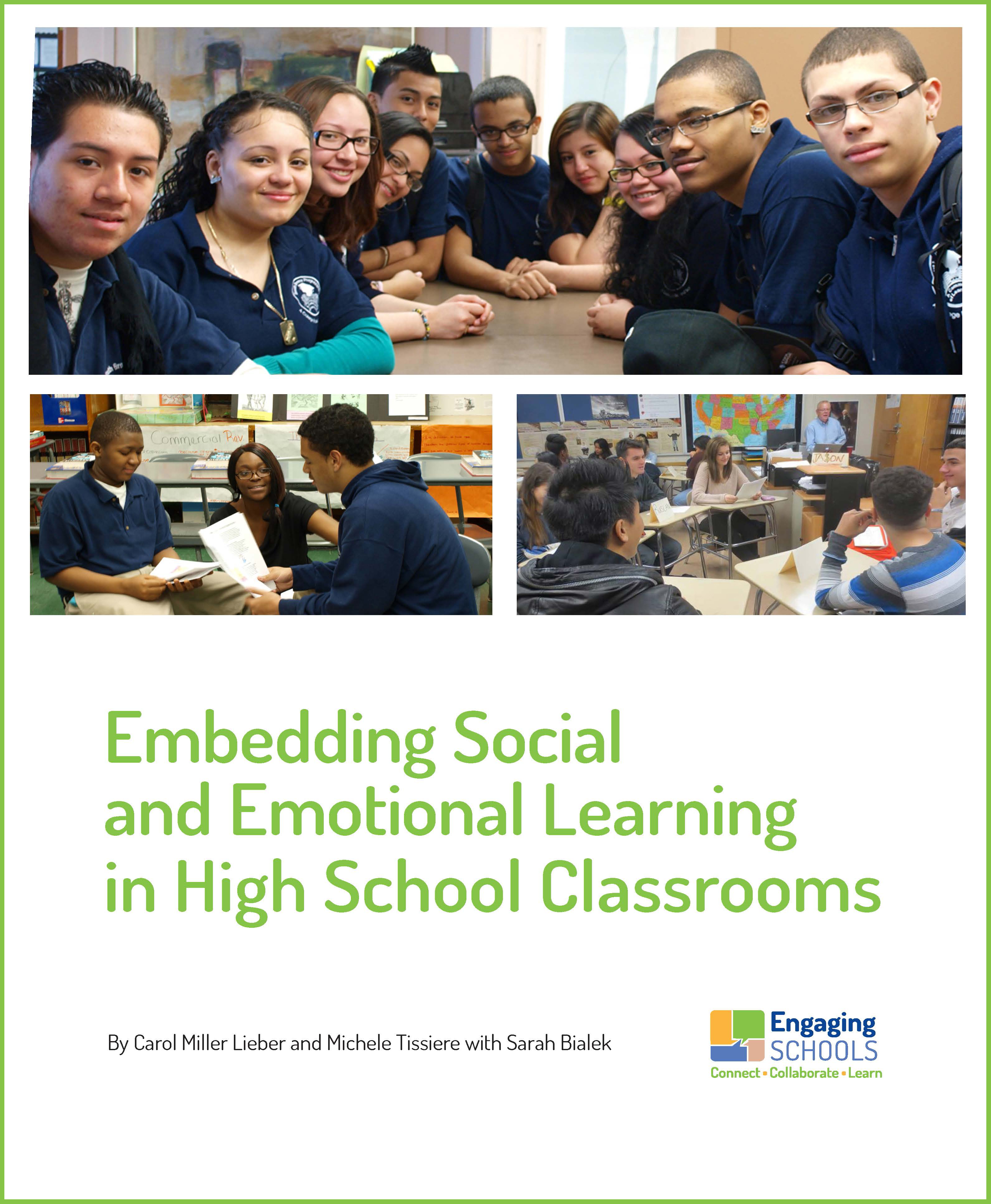-
Frameworks for Increasing Equity and Academic Success
Our Engaged Classrooms approach for secondary schools offers three key pedagogical frameworks that support increases in equity and the academic success and achievement of every student. They are: Equity-Centered Classrooms, which emphasize culturally responsive and developmentally informed practices that affirm students’ multiple identities, their cultural experiences, and the range of their developmental needs and interests….
More -
Winston-Salem/Forsyth County Schools partners with Engaging Schools to address inequity
December 2, 2021 | Blog | District Codes of Character, Conduct, and Support | Schoolwide Discipline and Student Support | Social and emotional learningThe impacts of COVID-19 on students and a national movement for racial justice are compelling many districts to explore ways they can implement supportive and restorative discipline practices as students readjust to in-person classrooms. NBC News covered the story in ‘Growing awareness’: Schools focus new policies on equity with students back in school. One such…
More -
How do educators do what may be the single most important thing for their school communities?
One of the essential questions at the heart of our Engaged Classrooms approach is “How do I foster and sustain strong and supportive personal relationships?” For adolescents, an emotional connection with adults is perhaps the single most important factor for fostering positive development, including higher levels of engagement, motivation, and academic performance. In addition, the…
More -

The National Commission on Social, Emotional, and Academic Development final report: tools you can use from Engaging Schools
We at Engaging Schools were eager to see the final report from the Aspen Institute’s National Commission on Social, Emotional, and Academic Development. We wholeheartedly support all of its recommendations. While all are in our wheelhouse, we’d like to highlight one in particular: “Change instruction to teach students social, emotional, and cognitive skills; embed these…
More -
Integrating Learning and Life Competencies into Every High School Classroom
December 6, 2018 | Blog | Social and emotional learningWe invite you to learn about embedding social and emotional learning (SEL) in high school classrooms through a free, 30-minute webinar which we presented in partnership with the National Association of Secondary School Principals. Engaging Schools provides a rationale for integrating academic, social, and emotional learning and support in every classroom as the foundation of…
More -
Recommended resources for helping students cope with mass violence
October 3, 2017 | Blog | Social and emotional learningThe following resources are once again relevant to recent events. The National Association of School Psychologists’ guidelines for helping students cope with terrorism and other kinds of mass violence provides support for adults in schools. Here is an excerpt: “Upper middle school and high school students will have strong and varying opinions about the causes…
More -

Engaging Schools Publishes White Paper on Embedding Social and Emotional Learning in High School Classrooms
September 13, 2017 | Blog | Social and emotional learningEngaging schools is pleased to announce a new white paper, Embedding Social and Emotional Learning in High School Classrooms, to help districts and schools meet the challenges of implementing social and emotional learning (SEL) in high schools. Drawing on more than 20 years’ experience working with secondary school leaders and classroom teachers, we advocate that…
More -
Students are more likely to graduate if we help them successfully adjust to high school
Our board of directors includes many educators with deep experience as practitioners and researchers. One is Jenny Nagaoka, who – along with John Gomperts of America’s Promise Alliance – recently published a commentary in Education Week citing ways to help more students finish high school. Jenny is the Deputy Director of the University of Chicago…
More -
Engaging Schools joins Call to Action to U.S. Department of Education
August 31, 2016 | Blog | Social and emotional learningEngaging Schools joined over 300 other signatories in a Call to Action submitted on June 1 to the US Department of Education (DOE) advocating for practices that reach and teach the whole child. The DOE is supporting states in implementing the new federal Every Student Succeeds Act. The Call to Action emphasizes the importance of…
More -
NAEP to assess noncognitive skills, starts 2017
June 16, 2015 | Blog | Social and emotional learningEducation Week reports that starting in 2017, the National Assessment of Educational Progress (NAEP) will include measures of motivation, mindset, and other noncognitive factors. According to Education Week: The background survey will include five core areas—grit, desire for learning, school climate, technology use, and socioeconomic status—of which the first two focus on a student’s noncognitive skills, and the third looks…
More
- Topics
- Advisory Plus (3)
- Annual Reports (1)
- Blog (66)
- Conferences (3)
- Countering Bullying and Harassment (4)
- Development (1)
- District Codes of Character, Conduct, and Support (2)
- Engaged Classrooms (11)
- Engaging Schools (12)
- Publications (8)
- Research (5)
- Schoolwide Discipline and Student Support (23)
- Social and emotional learning (10)
